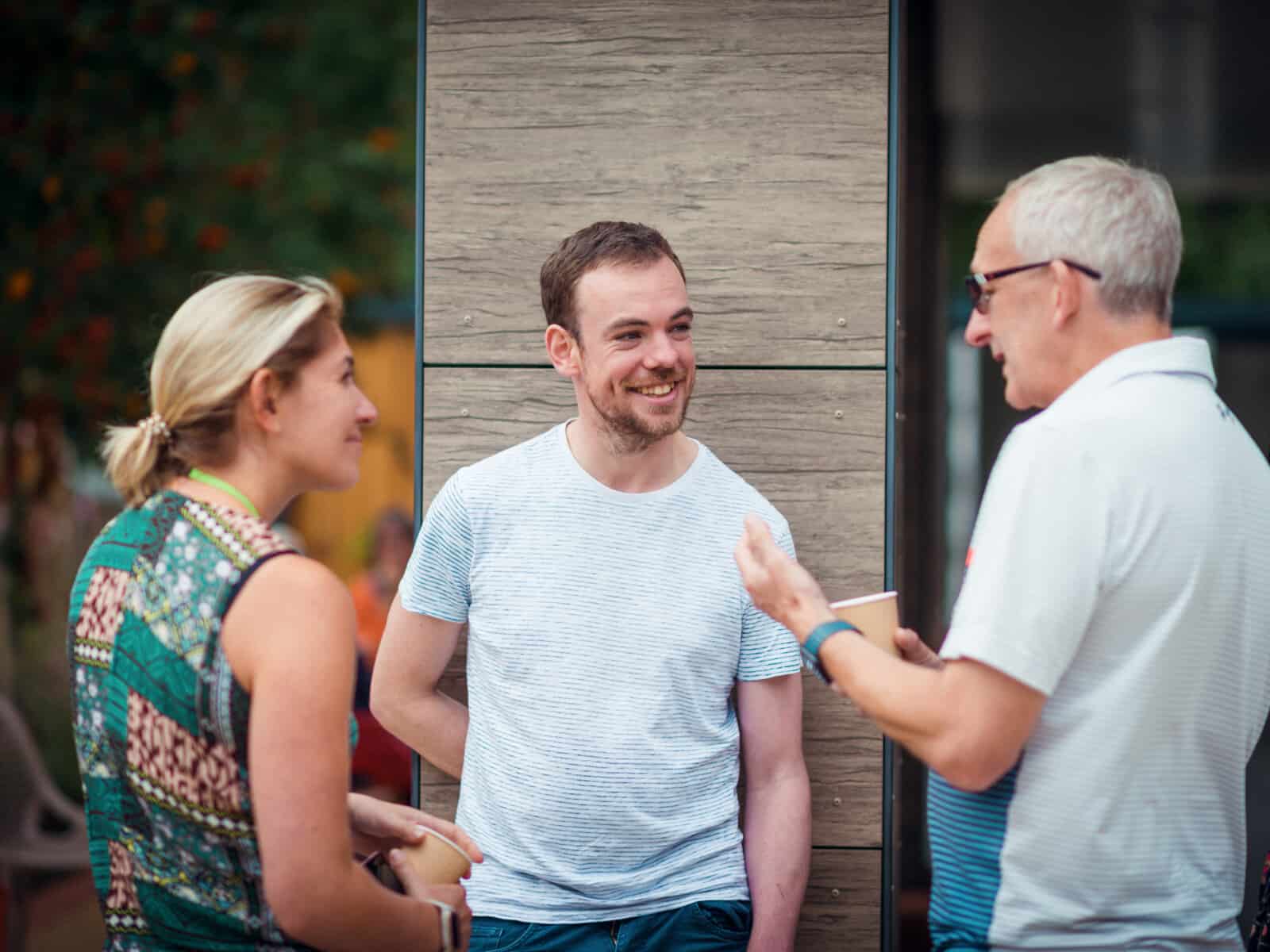David Noblet suffered an ischaemic stroke on the 25th November 2017 at the age of just 27. At the time of his stroke, David was fit, healthy and in his third year at the University of Nottingham studying mechanical engineering. The stroke came as a huge shock to both himself and his family, however David’s tenacity and positive approach to his condition has meant he has made incredible progress and is an inspiration to others.
The cause of David’s stroke was a carotid artery dissection. It occurred in the early hours of the morning when he awoken experiencing severe weakness down his left-hand side. He was taken by ambulance to hospital in Nottingham where he and his family were told that he may never walk again.
Following 3 weeks of treatment at Queens Medical Centre and Nottingham City Hospital, David and his family decided to see what stroke rehabilitation was available to try and ensure the best recovery possible. Their research led them to STEPS.
There are sadly a limited number of facilities for young people to go to once they have been discharged from hospital following a stroke. Whilst it is relatively unusual for someone so young to have a stroke, the Stroke Association has said that the number of young people suffering a stroke is rising dramatically.
Stroke rehabilitation at STEPS
David transferred to STEPS Rehabilitation on the 19th December 2017. He presented with left sided weakness in his arm and leg, sensory loss and neglect to the left arm and a 7th cranial nerve palsy evident on the left side.
Functionally David was able to step transfer to his right with minimal assistance to a normal upright chair, though he had started to develop some compensatory strategies. He could independently (under supervision), pivot transfer to his right and with minimal assistance pivot to he left. He could sit unsupported on the edge of a plinth or bed.
David took part in an intensive therapy programme involving the following:
- One-to-one land-based physiotherapy sessions
- Aquatic therapy
- Sensory programme
- Exercise programme
- Bike sessions
- Climbing sessions at the Foundry Climbing centre
- Neurologic Music therapy
- Occupational therapy
- Speech and language therapy
- Psychology
- Thai Chi / yoga class
- Balance class
A goal setting meeting was completed within the first 7 days of arrival ensuring we were working towards and focusing on David’s particular wants and needs. Short and long term goals were established.
David’s progress at STEPS Rehabilitation
As a modern state-of-the-art rehabilitation facility, STEPS is geared towards younger people requiring high quality rehabilitation for a range of complex medical conditions.
David found, that once in a facility focused on helping younger clients and by engaging in a mixture of therapies – physiotherapy, speech and language therapy, aquatic therapy and neurologic music therapy, he quickly made positive progress.
Initially physiotherapy focused on standing up against gravity, standing alignment, weight transference and transfers to and from different surfaces. These primarily took place in the gym, with exercises either on a plinth or within the parallel bars. The parallel bars enabled David to begin taking his first steps in a safe environment.
Aquatic therapy complemented his land-based sessions by giving David the opportunity to practice mobility in a more weightless environment. It also provided a calmer environment for managing tone and enabled us to stretch and use the resistance of the water to challenge both David’s balance and improving strength.
As David got stronger so did his resolve and we were soon participating in weekly trips to the Foundry climbing centre where David was supported to climb routes on the indoor climbing walls, something David participated in before his Stroke.
When he first joined STEPS, he was reliant on a wheelchair, but after 3-months of intensive rehabilitation he left us walking. And in November 2018, exactly a year on from his stroke, David is back at the University of Nottingham and is on track to graduate in June 2019. David has said of his time at STEPS, “I wouldn’t be able to contribute to society right now if I hadn’t received that service…”
Raising awareness of young stroke survivors
David is an inspiration to all young stroke survivors and a great example of what can be achieved with the right rehabilitation, he is keen to raise awareness of strokes in young people and how vitally important intensive rehabilitation is.
Strokes in the young are on the rise, with the average age of stroke victims falling in recent years. The effects of a stroke on a younger person, often of working age are far greater than those experienced by survivors aged 65+. A young stroke survivor will often be left with greater financial burdens having been left unable to work during their most productive years. A stroke will impact career choices and family commitments and long-term care will be a necessity. STEPS addresses this need for unique and intensive rehabilitation, offering residential and day packages for anyone who has suffered from a stroke.
As part of this awareness, David’s story was shared locally and nationally in November last year. David was invited to a radio interview at BBC Sheffield and was joined by BBC Nottingham at his gym and University. Sky News also visited STEPS in Sheffield, sharing David’s remarkable journey to recovery on their ‘Sunrise’ show.
Coverage can be viewed here.

